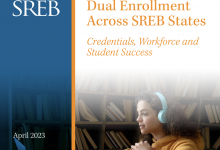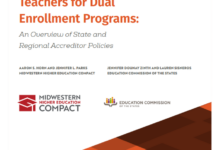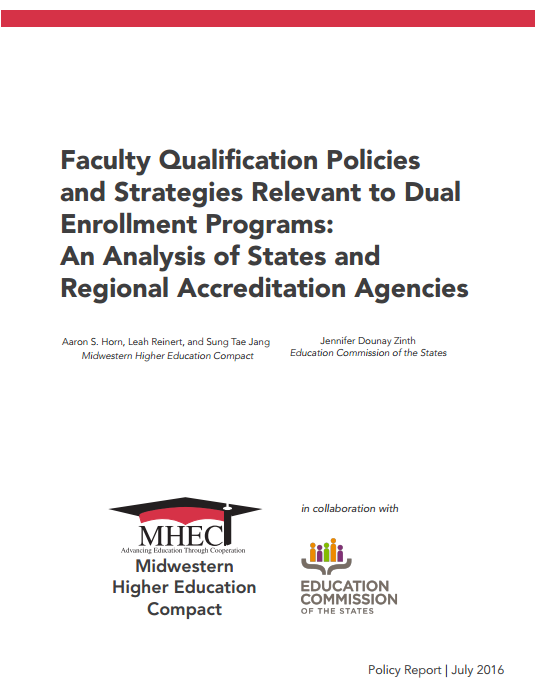Many Career Technical Education (CTE) programs allow students to earn credits in high school that can be applied towards a postsecondary degree—a strategy known as dual, or concurrent, enrollment. While dual enrollment provides a flexible, affordable pathway towards a postsecondary credential, states must ensure that dual enrollment instructors in technical and academic subjects alike have the expertise and qualifications necessary to facilitate advanced learning.
This 50-state report from the Education Commission of the States (ECS), co-authored by the Midwestern Higher Education Compact, explores policies related to dual enrollment faculty qualifications and identifies four approaches: accreditor-approved qualifications, equivalent faculty qualifications, requirement of a master’s degree, and graduate credit requirements. The report further details state strategies to help classroom instructors meet dual enrollment qualifications.







